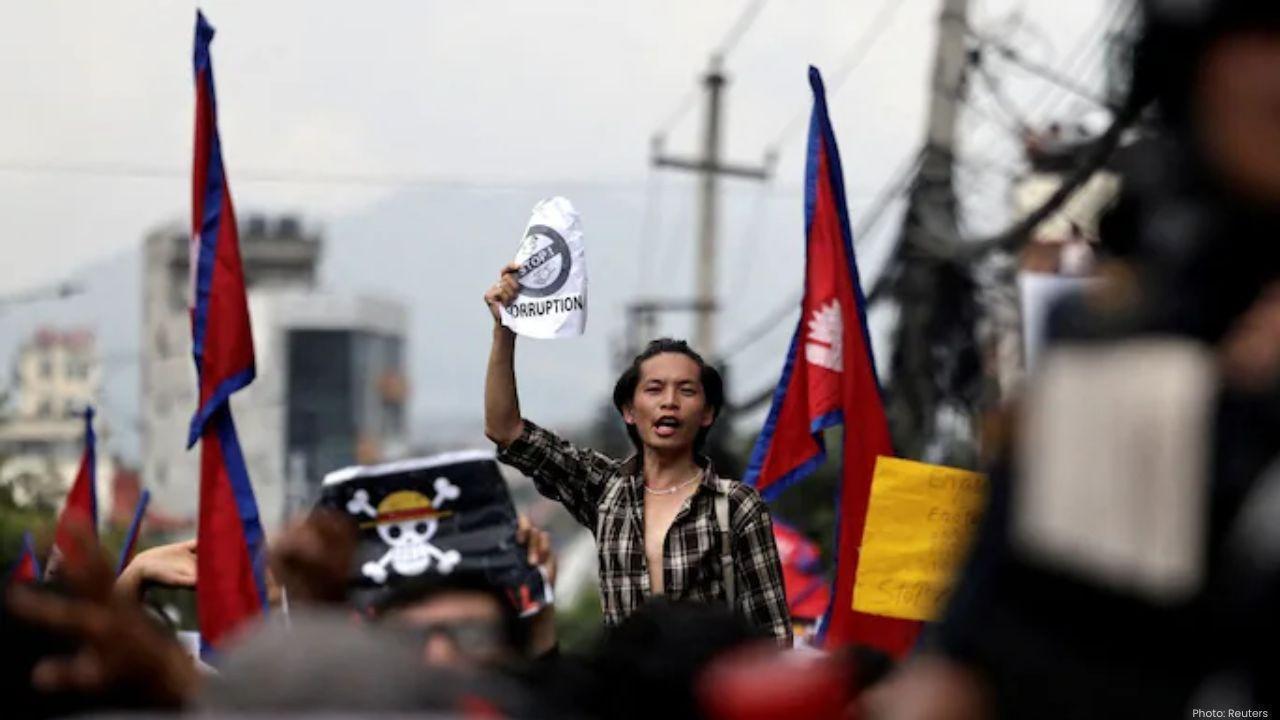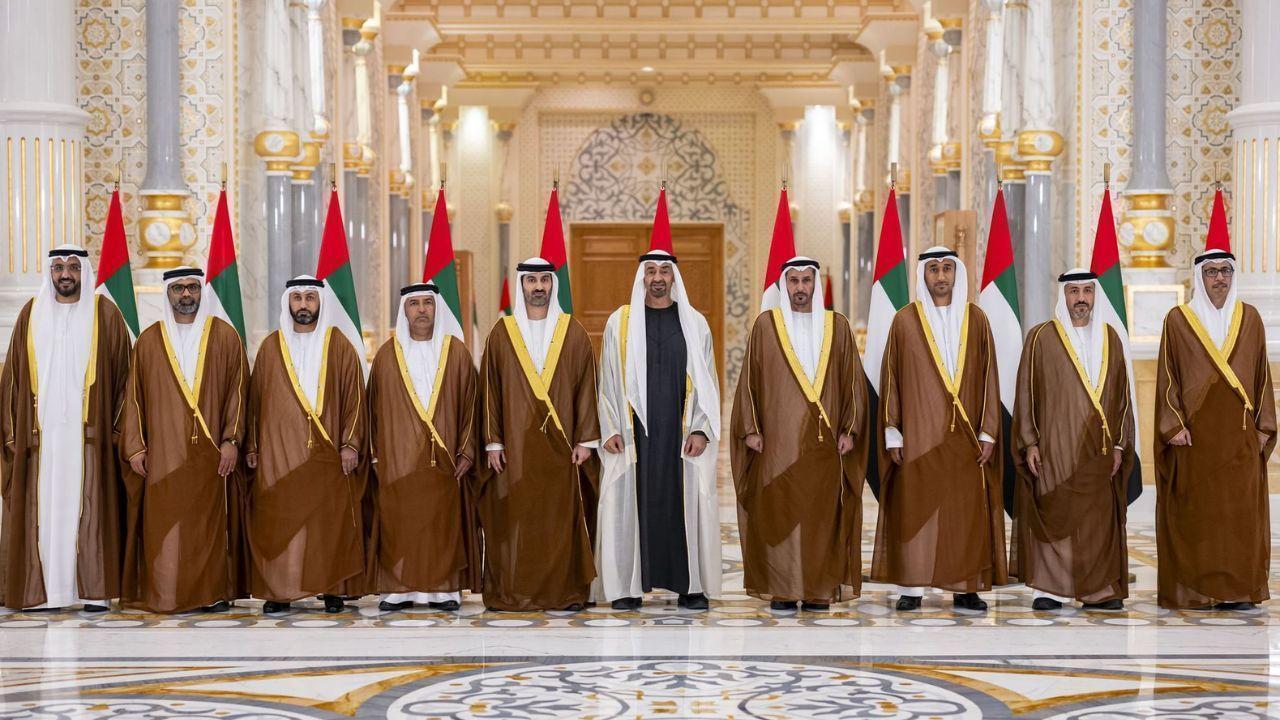
Post by : Layla Badr
Nepal is currently facing a major political crisis as protests led by young people, particularly Generation Z, have turned violent. The unrest began after the government imposed a temporary social media ban, but the root of the anger goes deeper. Citizens, especially the youth, are frustrated with widespread corruption, nepotism, and unfair privileges given to the children of powerful leaders.
Rising Frustration Among Young Nepalis
Kathmandu Mayor Balendra Shah Balen’s Facebook page has been flooded with posts criticizing the country’s “nepo kids.” These are children of influential politicians and leaders who are perceived to receive advantages and opportunities simply because of their family connections. Ordinary citizens, on the other hand, continue to struggle with economic hardships and limited job opportunities.
Over the past year, young Nepalis have expressed their frustration on social media using hashtags like #NepoKid, #NotMyNepal, and #MeritOverLegacy. This movement has highlighted the unfair advantage enjoyed by some families, and it has sparked debates about merit, fairness, and equal opportunity across the country.
Government Response and Escalation
The situation worsened when the government led by Prime Minister KP Sharma Oli, which has now resigned, attempted to suppress the social media movement. This action only fueled public anger, as many saw it as an attempt to silence legitimate concerns.
Stay informed with the latest news. Follow DXB News Network on WhatsApp Channel
Prime Minister Oli himself faced accusations of favouring the children of relatives and close associates. Reports indicated that these “nepo kids” were given special treatment in government contracts, jobs, and other opportunities, further igniting frustration among the general population. Viral social media posts and stories portrayed the struggles of ordinary youth who lacked such privileges, making the issue even more visible.
Nationwide Youth Movement
In the last two years, many young Nepalis have mobilized against nepotism. Small campaigns in rural villages have grown into large city-wide protests, with widespread support on social media. The movement has united young people across Nepal who demand transparency, merit-based opportunities, and an end to favoritism in both politics and other sectors.
The protests gained momentum as prominent leaders’ children flaunted their wealth, luxurious lifestyles, and privileges online. This display of privilege during economic crises, high unemployment, and rising cost of living enraged ordinary citizens, especially the youth.
Six Key Incidents That Sparked Anger
Several high-profile incidents have contributed to public outrage against “nepo kids.” These cases illustrate the influence of family connections and favoritism in politics, business, and society.
1. Political Leader Appoints Son to Senior Ministry Post
One notable incident involved the son of a prominent political figure being appointed to a senior post in a government ministry despite having limited experience. In Nepal’s Gandaki Province, Saugat Thapa, son of Bindu Kumar Thapa, the Minister for Social Development, received a high-ranking position in the provincial government.
Many people criticized this appointment, arguing that it was based on family influence rather than merit. Social media campaigns quickly emerged under the hashtag #MeritNotNepotism, questioning the fairness and transparency of the process. Although the government conducted an inquiry, only minor reforms were implemented, leaving many dissatisfied.
2. Influence in the Film Industry
Nepotism is also widespread in Nepal’s entertainment industry. A young actress, whose father is a well-known politician, reportedly secured a lead role in a major film without any acting experience. This sparked protests from talented but less connected actors. Social media pressure led some film producers to revise audition policies, yet family influence remains strong in the industry.
3. Bank Loans and Government Contracts
Reports have shown that some senior officials’ children received large bank loans without proper guarantees. Investigations suggested misuse of these funds, and although several high-ranking officials were implicated, no strict actions were taken due to political and mafia influence. Despite new rules being introduced, actual changes were minimal. This fueled public demand for more transparency in banking and government dealings.
4. Perks for Families of Coalition Partners
During Oli’s government, the families of coalition partners benefited from special privileges. Some prominent “nepo kids,” such as Shreya Karki, Vivek Sharma, and Tara Thapa, received political and social opportunities despite limited qualifications. Reports indicate that in April 2024, relatives of Oli’s close associates were promoted in party positions and given business opportunities, contributing to political divisions and public anger.
5. Miss Nepal Controversy
Former Miss Nepal, Shrinkhala Khatiwada, also became a focus of nepotism debates. Her father, a former health minister, was reported to have helped her receive $50,000 from the Miss World Foundation for her projects. Critics argued that her family connections played a significant role in her success, further fueling the perception of unfairness.
6. Tragic Death of a Young Girl
A particularly tragic incident strengthened the youth movement. Usha, an 11-year-old girl from a poor family, was allegedly run over by the son of a government official. Her death sparked nationwide outrage and intensified calls for justice, equality, and accountability. Many young people saw this as a symbol of the larger problem of privilege and impunity enjoyed by influential families.
Public Reaction and Social Media Campaigns
Social media has been a crucial platform for young Nepalis to voice their frustration. Hashtags like #NotMyNepal, #MeritOverLegacy, and #NepoKid have trended nationwide, spreading awareness about unfair practices and corruption. Citizens are demanding that opportunities in politics, business, and public services be based on merit rather than family connections.
The protests have also highlighted economic and social challenges facing ordinary Nepalis. With high unemployment, rising living costs, and limited opportunities, the youth feel left behind while the privileged few continue to prosper. This has created a sense of urgency and a strong push for reform.
Calls for Transparency and Change
The ongoing protests show that young people in Nepal are increasingly unwilling to accept nepotism and corruption. Citizens are demanding clear and transparent procedures in politics, business, and education. They are calling for merit-based appointments, accountability for misuse of power, and strict enforcement of rules to ensure fairness for all.
Nepal’s political crisis is not just about a temporary social media ban—it reflects deeper frustrations with nepotism, corruption, and inequality. The youth-led protests symbolize a broader demand for justice, fairness, and equal opportunities. From politics and banking to entertainment and education, the fight against favoritism continues to grow stronger.
The situation remains tense, but the determination of young Nepalis to challenge the status quo may shape the country’s future, pushing for a society where merit, not family connections, decides success.

Beyond Grades Why Emotional Intelligence is the Key to Students Success
Discover why emotional intelligence matters more than grades helping students succeed manage emoti

Chinese Woman Pays Rs 27 Lakh After Boyfriend’s Death
A Chinese woman pays Rs 27 lakh to her boyfriend’s family after he jumped from her moving car during

DMCC Partners with Korea’s NIPA to Boost AI & Startups
DMCC signs a strategic deal with Korea’s NIPA to expand AI, tech startups, and trade opportunities b

Sheikh Hazza Receives Abu Dhabi Heritage Authority Delegation
Sheikh Hazza meets Abu Dhabi Heritage Authority to discuss projects preserving Al Ain’s heritage, cu

Global Banking 2025: Transformations, Challenges, and UAE’s Strategic Role
Transformations, Challenges, and UAE’s Strategic Role

Tina Charles Wins Dawn Staley Award, Inspires Beyond Court
Tina Charles wins Dawn Staley Award for her leadership and community work. Her Hopey’s Heart Foundat

Google AI Plus: Affordable Access to Advanced AI Tools
Google launches AI Plus, a budget-friendly subscription offering Gemini 2.5 Pro, video tools, Worksp

Beyond Grades Why Emotional Intelligence is the Key to Students Success
Discover why emotional intelligence matters more than grades helping students succeed manage emoti

Global Banking 2025: Transformations, Challenges, and UAE’s Strategic Role
Transformations, Challenges, and UAE’s Strategic Role

Israel Launches Airstrikes on Yemen — 35 Dead, Over 130 Injured in Sanaa and Al Jawf
Emergency teams rush to rescue survivors as strikes hit military sites, fuel depots, and residential

Charlie Kirk Shot Dead at Utah University During Speech
Charlie Kirk, Turning Point USA founder, was shot dead at Utah Valley University. Chaos erupted as t

UAE President Hosts Ceremony for New Ambassadors
UAE President Sheikh Mohamed bin Zayed attends swearing-in of UAE ambassadors and receives credentia

UAE Civil Aviation Soars Airports Flights and Economic Impact
UAE’s civil aviation sector grows rapidly with world-class airports, international routes, cargo job

Barakah Nuclear Plant Completes One Year of Full UAE Power Supply
Barakah Nuclear Plant marks one year of full operations, providing 25% of UAE electricity and cuttin

GCC launches unified 2025 guideline to boost investor relations
A new GCC-wide 2025 Investor Relations Guideline aims to unify practices, strengthen transparency an